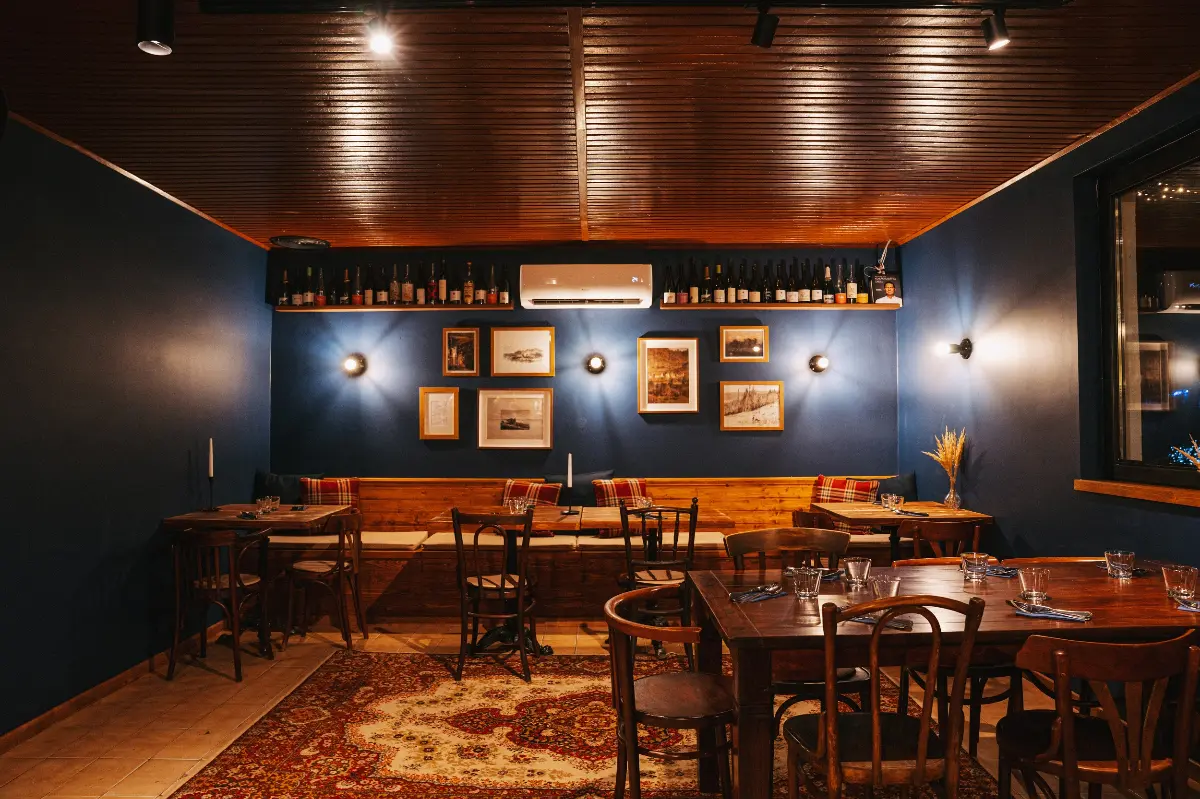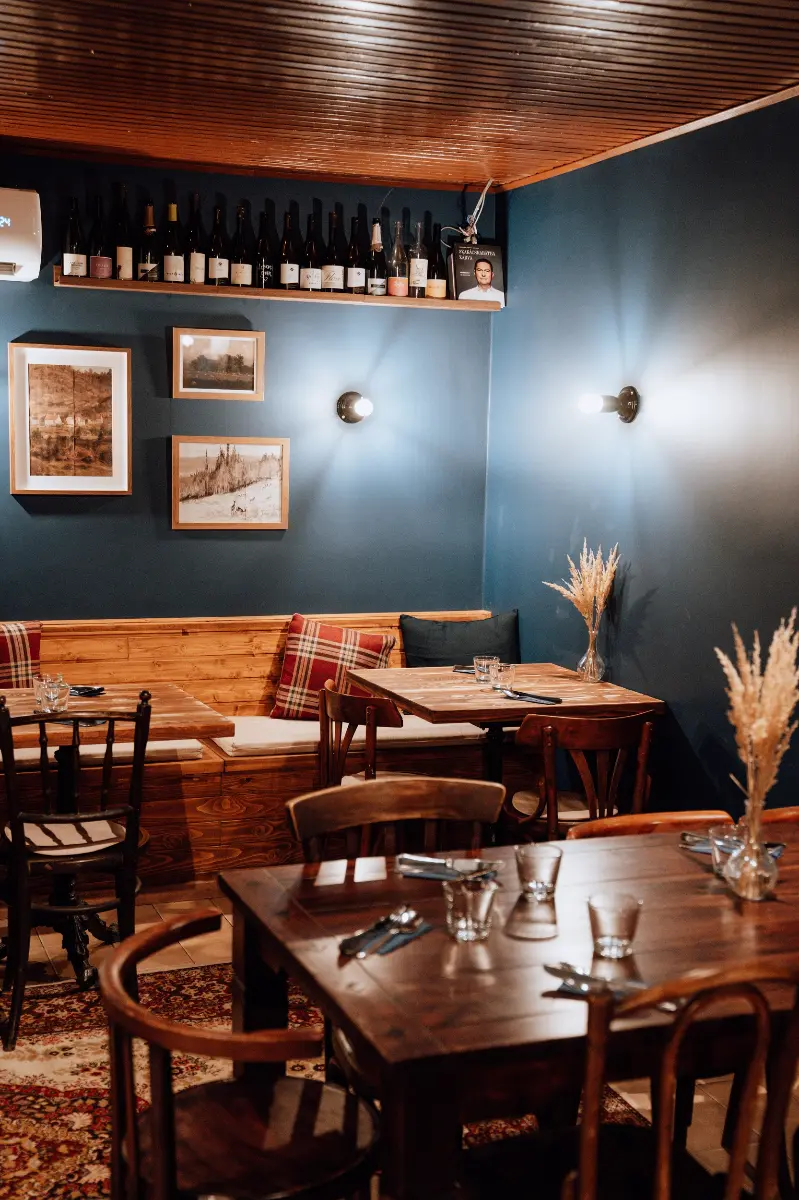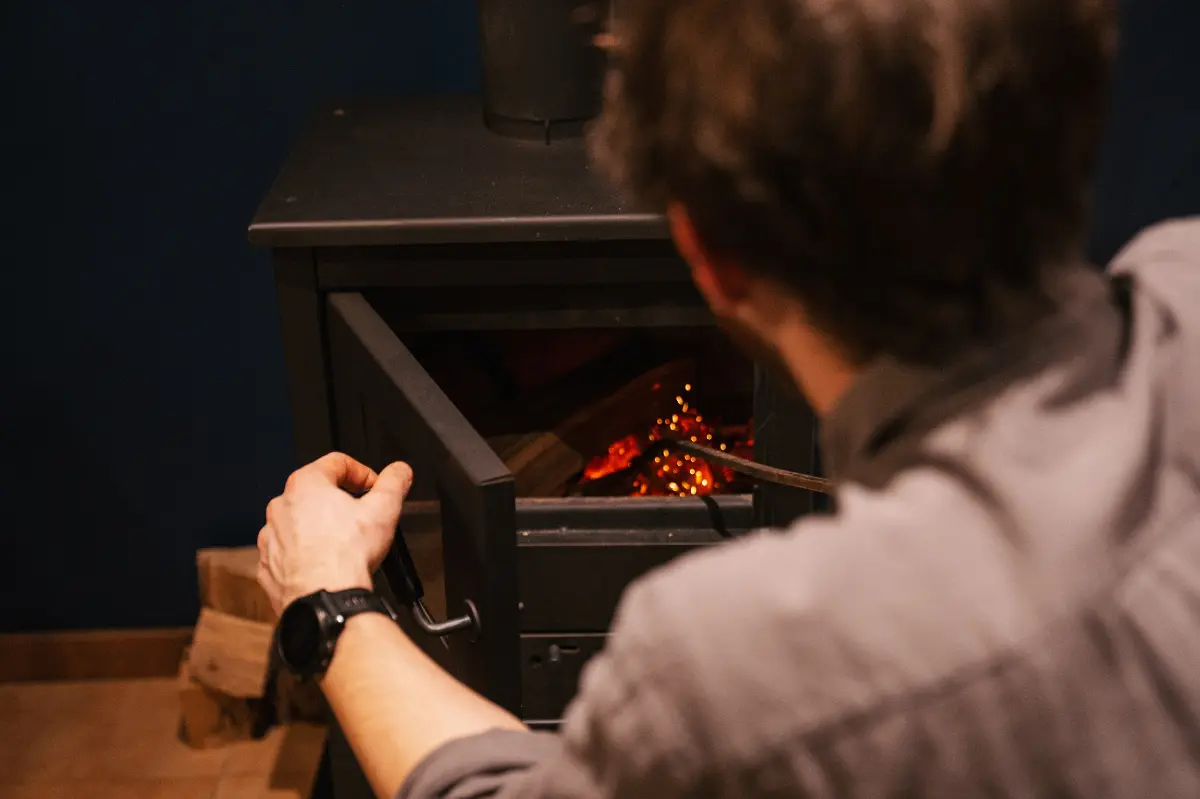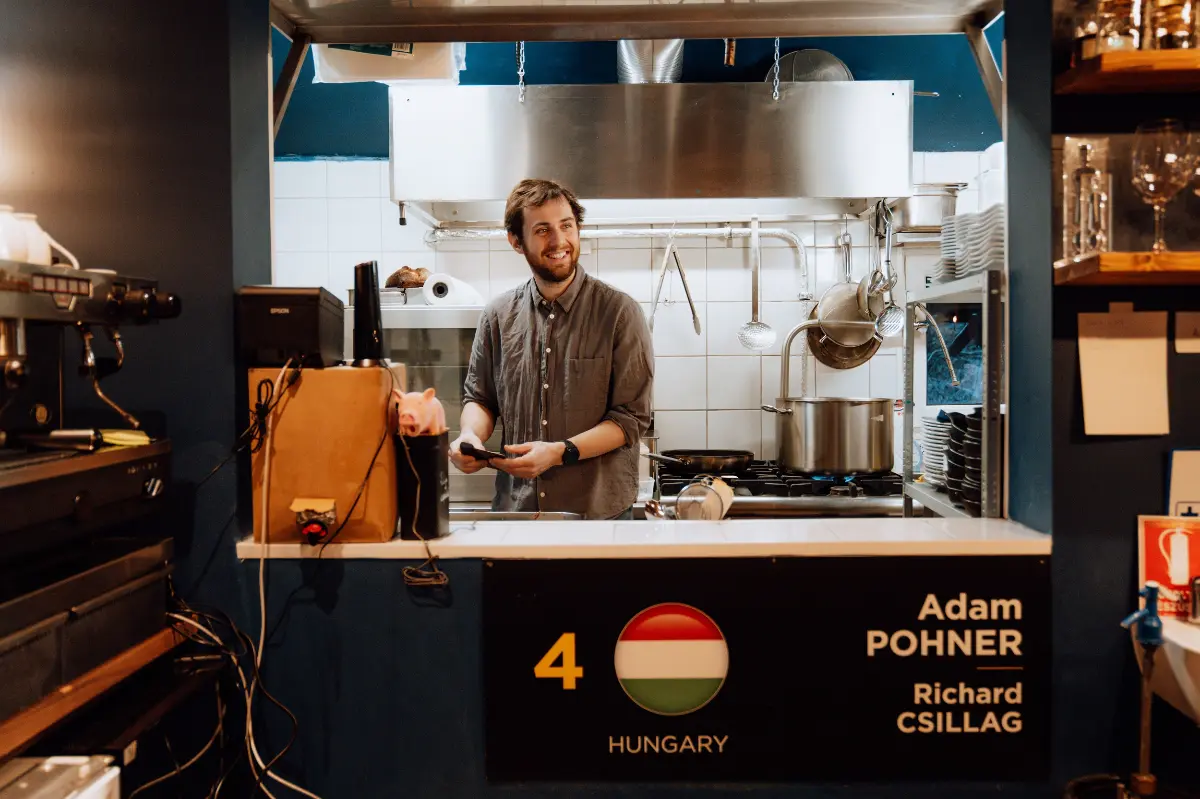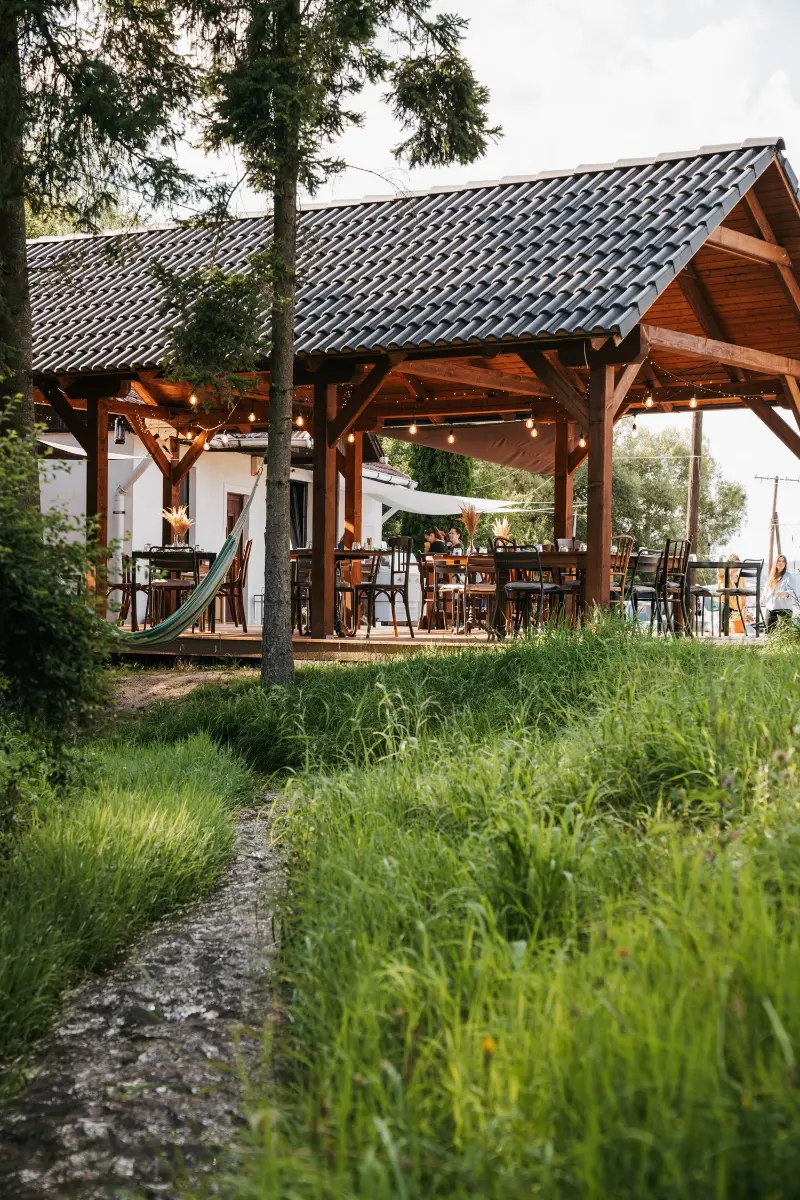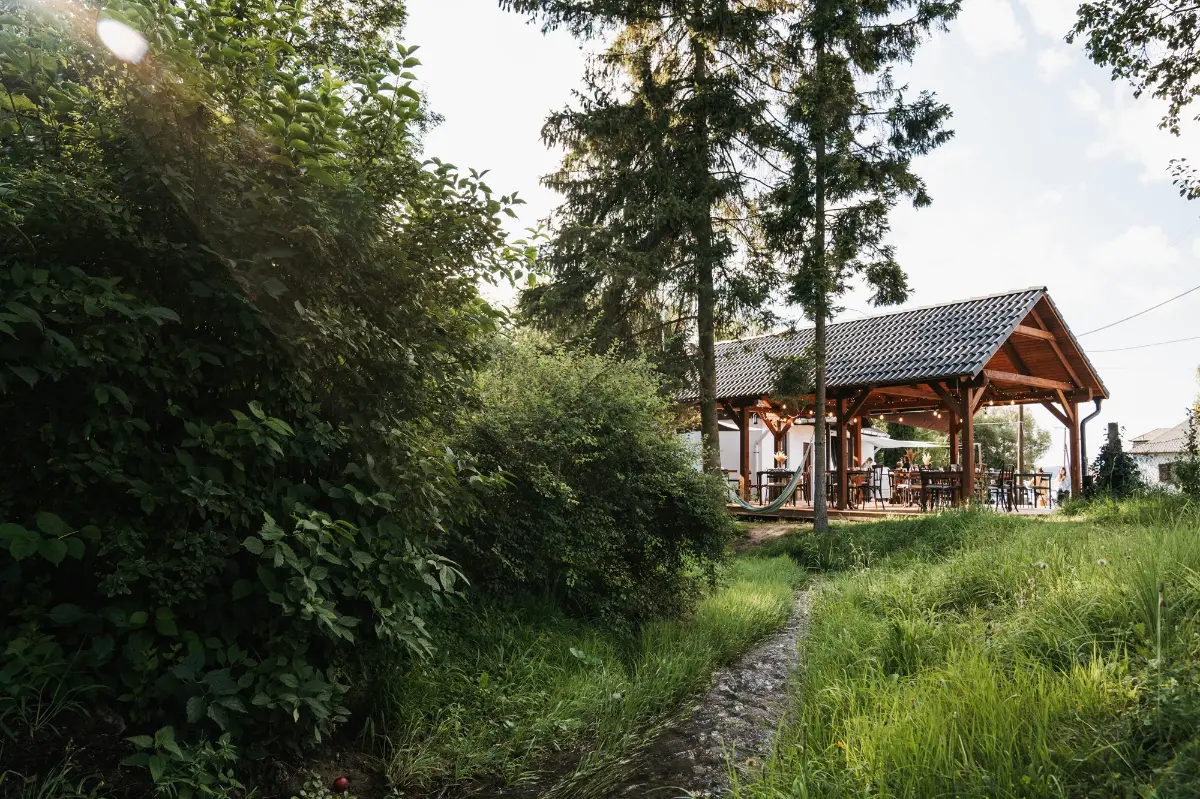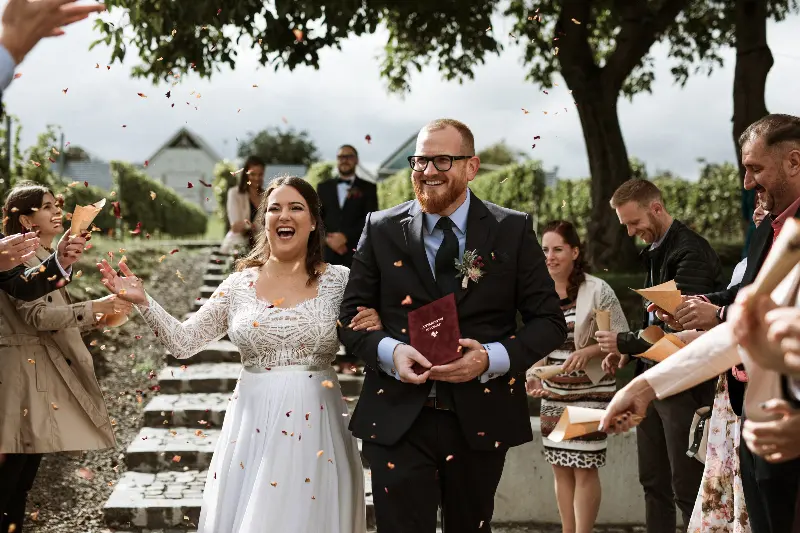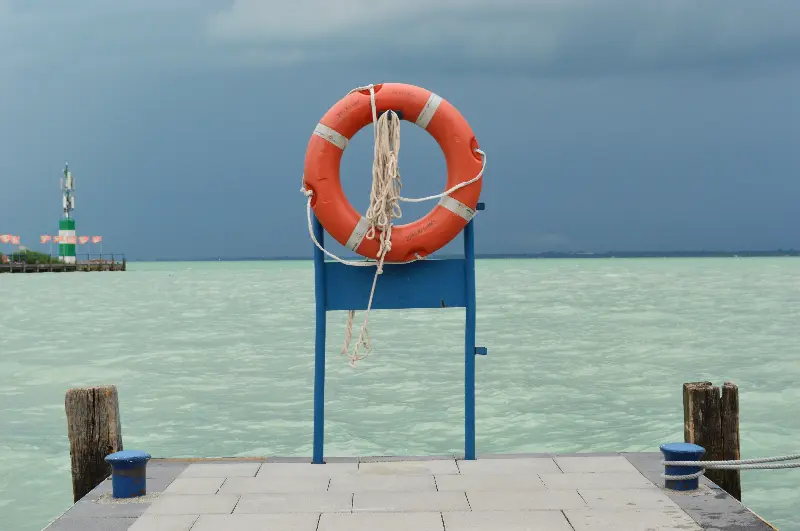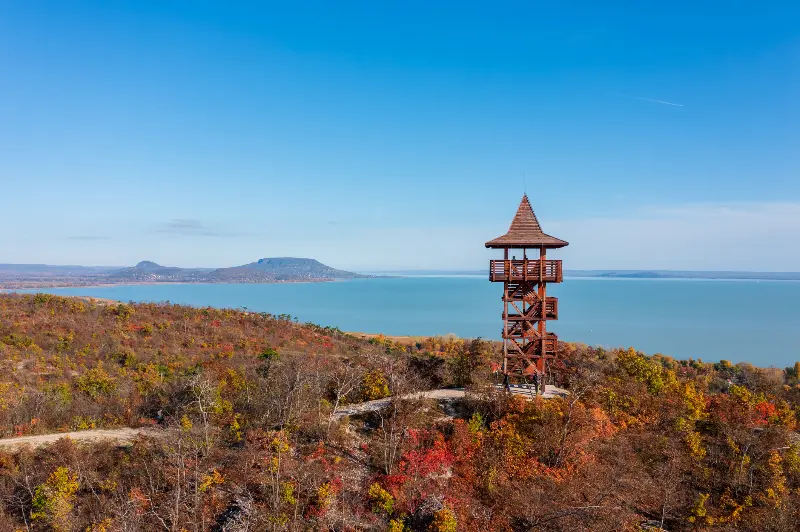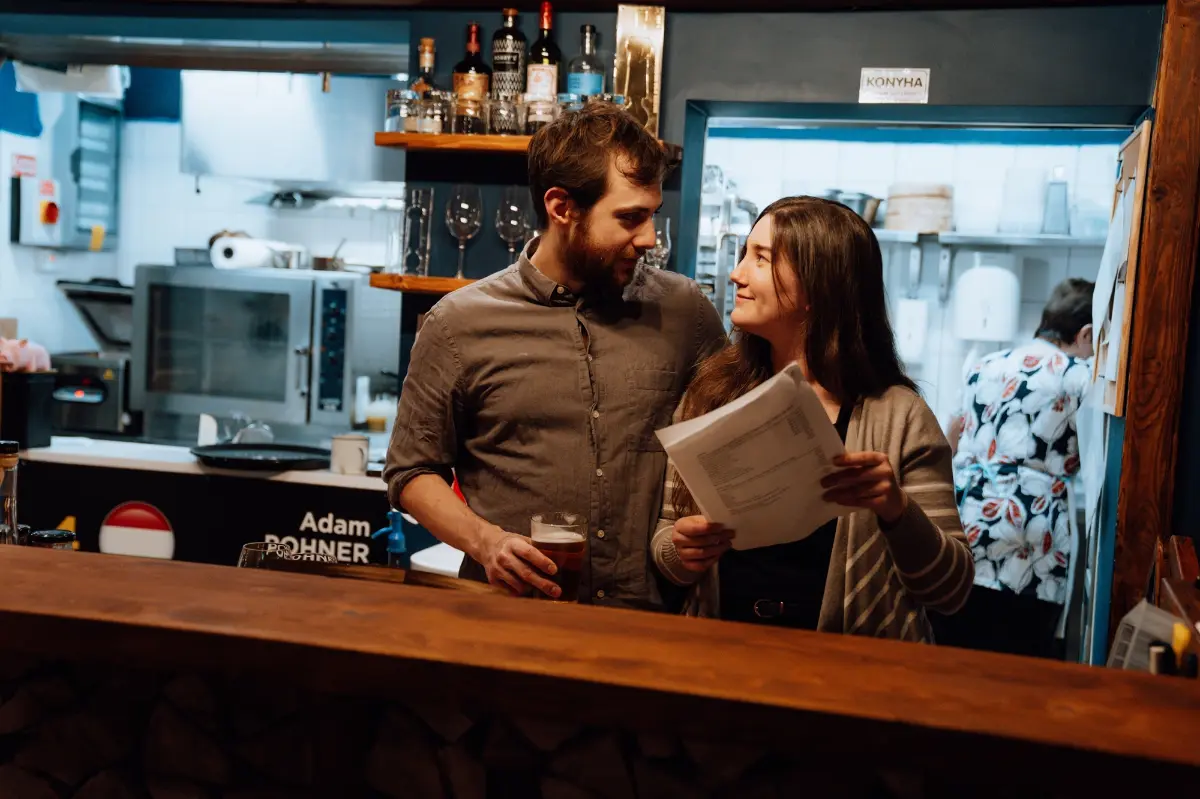
Helyszín címkék:
Happiness at the end of the “Mordor Road” – interview with Ádám Pohner
Francisck Réka Alíz
Every story has a beginning, how about Iszkor?
Á. P.: It was more than 2 years ago, in 2021, that we came here to pick apples and make a good cider. Then we saw that the pub at the end of the village was for sale.
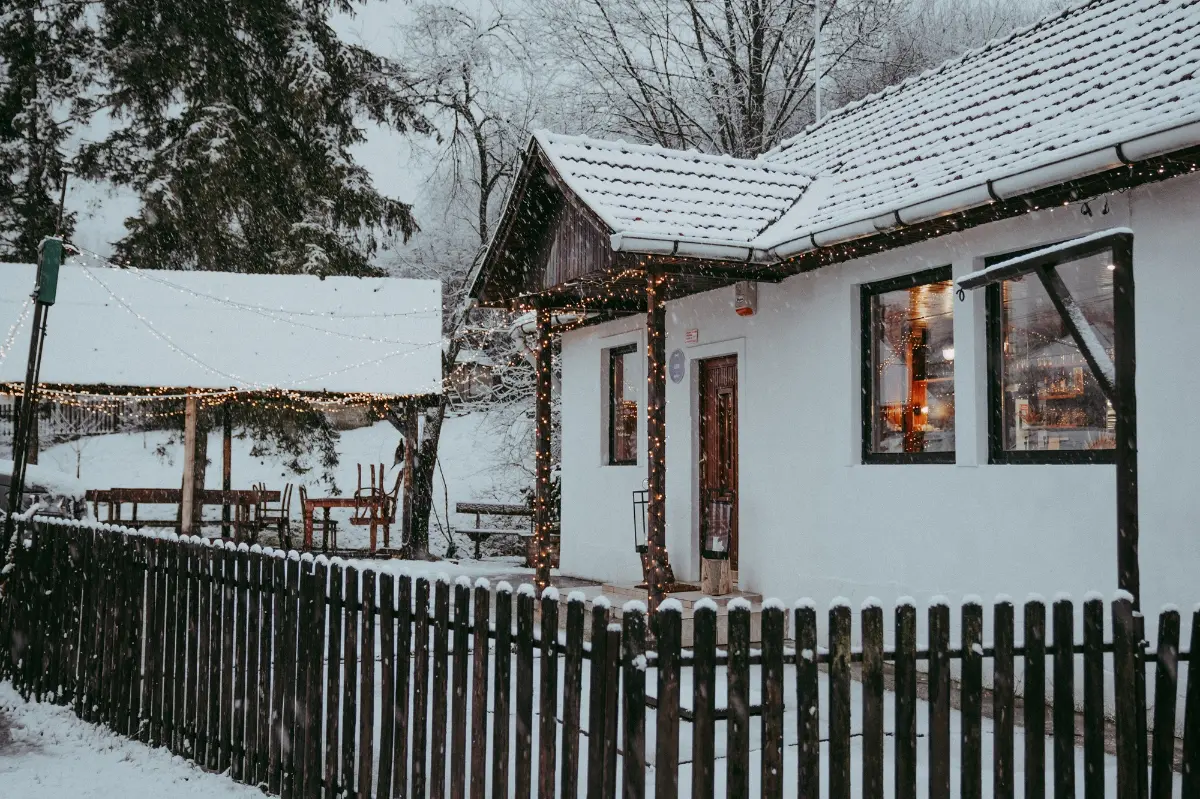
But why did you come here to pick apples? You could have gone so many more places.
Á. P.: This is where my grandmother lived all her life, and I love this area. As a commis, I was already thinking about how nice it would be to open a small restaurant around here – if not necessarily in Mályinka, but near Szilvásvárad and Lillafüred, where you can easily hop here from Ózd and Kazincbarcika. We loved hiking around here in the first place, and there is a favourite place to stay, the cosy Málna Major with its wonderful fireplace, where you can snuggle up and even try the hot tub. We booked it again for a nice winter weekend, I remember on the way here we got caught in a huge snowstorm. Normally, it takes 40 minutes to get here from Eger, which we did in an hour and a half on what locals call the “Mordor road”. Finally we just ran in, drank wine, cooked, talked, looked at the landscape with a white snow blanket from the garden. And then we said: here will be the best, the most honest, in Mályinka, on the site of the pub. So we found the building in November, signed the papers in January, and then came the demolition and construction, which Luca, my partner, documented with good sense and made public on social media, good and bad as it came, honestly. And in September, she announced: we open in 2 weeks! The kitchen was ready, but there were no cushions on the chairs, no pictures on the wall. In the heyday there were two of me and Luca, then Ildikó came third, then a niece and her boyfriend. Everyone from the neighbourhood, people from Ózd, and absolute locals.
So how many of you are doing the Iszkor now?
Á. P.: We operate Iszkor with 6 fixed people, of which 1 is a strong occasional and 2 are “light” occasional staff. We usually start at noon, with the arrival only at full time, opening again at 6.00 p.m. On peak days, we serve 50 people for lunch and 50 more for dinner. Inside there is room for 30 people, but there is also space outside on the terrace. There were also times when the guests sat on the grass, during an event.
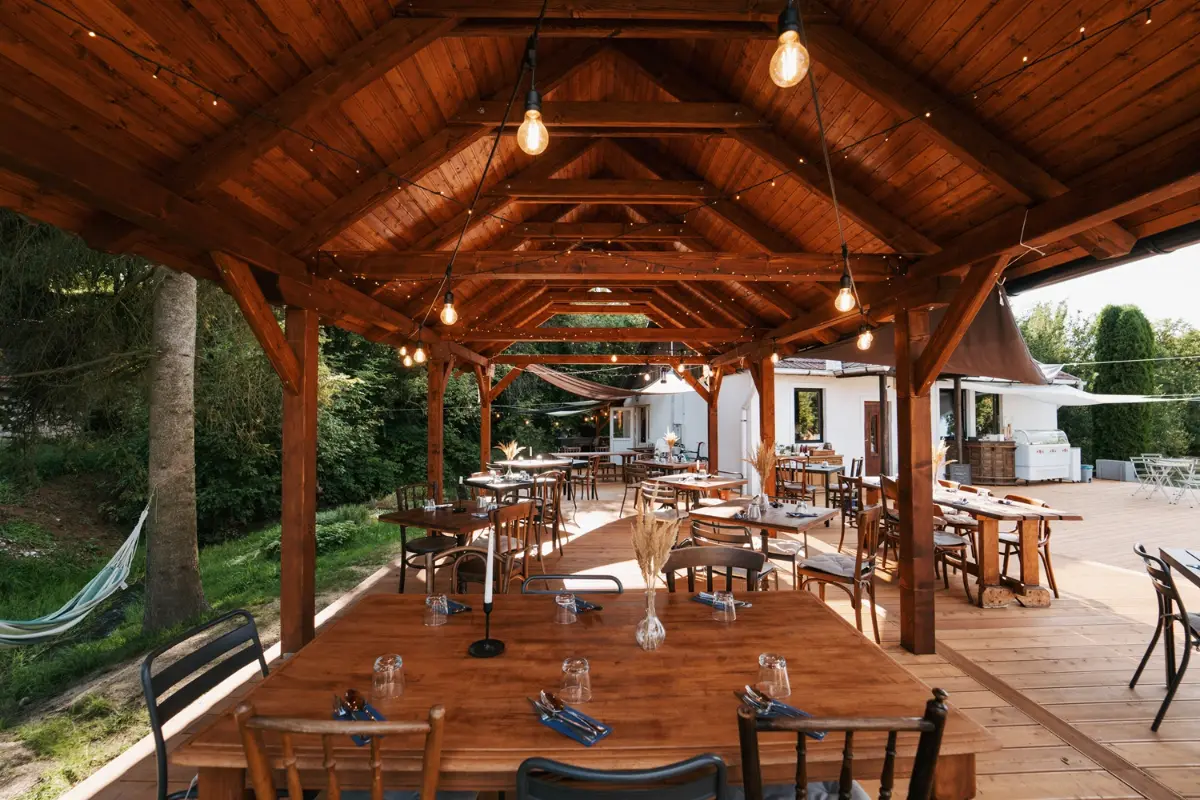
Where do most of your guests come from?
Á. P.: 80% of our guests come from Kazincbarcika, Miskolc, Eger and the immediate surroundings, but many also come from Slovakia. Our regulars have been growing, I can now say a strong 20% return regularly (i.e. by every menu change, or at least every month).
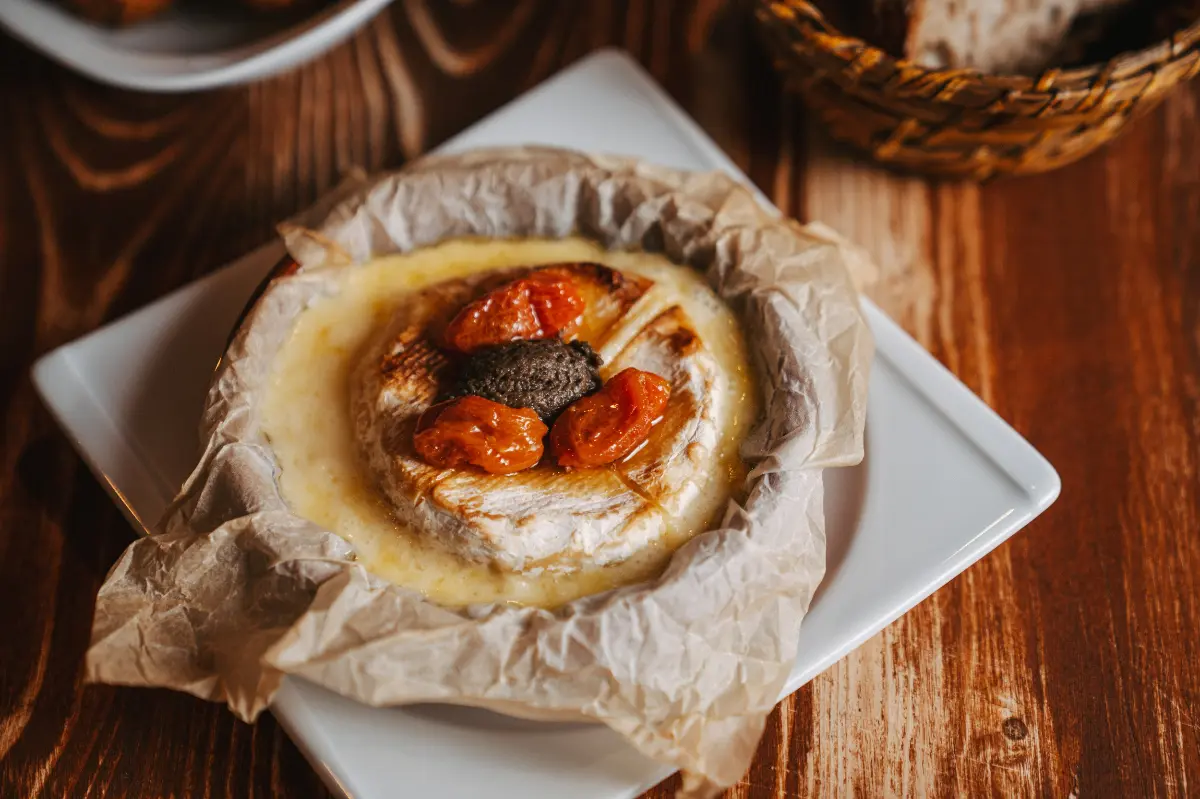
Are there any items on the menu that you are not going to remove?
Á. P.: Yes, there are some, for example, the wild boar croquettes or the Bükk camembert. We have to walk a fine line to ensure that both local visitors and those coming from the capital are satisfied. We say this is “ingredient cuisine.” Something that reflects the characteristics of the area, that we want to convey in the purest, most honest and direct way. There is so much here at the ingredient level that sometimes I really don’t understand why more people don’t open restaurants around here. It’s true that not everything is always available – but that’s what a flexible menu – and a flexible chef – is for.
How was the pool of suppliers built? Surely not overnight?
I would say organically. We first contacted Gyuri (György Hoitsy, Lillafüred Trout Farm), he has his smoker at the end of the village, and he still supplies the trout, which is always on our menu. Tamás Sándor (Bükki Sajt – ‘Bükk Cheese’, Mónosbél) is also a so-called endowment, in the cow cheese line. With the exception of cheese, all other dairy products come from the Szuhavölgyi family dairy farm, from Szuhafő, from cows with A2 genetic characteristics (A2, or “ancestral” milk, is less likely to cause digestive problems due to its specific protein structure). One day a guy, Zoltán, wrote to us on Tiktok saying that he had the typical Hungarian cow species ‘magyartarka’, asking whether or not we needed it. I saw on FB that they were doing water-gas systems. He is even saved in my phone as “water-gas-cow-calf”. Actually, their normal name is Dombhát Magyartarka Ranch in Izsófalva, from where we get phenomenal sirloin, brisket and shank – but we also have them to thank for our hot water. There are also others who stand on more than one leg: from the Vadnai Csakazértis wine and organic farm, Marcsi and András, we not only order wines, but also buy a lot of vegetables from them, such as beetroot, onions, or most recently Chinese cabbage, which we fermented for kimchi. The owners of the aforementioned Málna Major make the syrups of Iszkor. Poultry (freely reared chickens, geese and turkeys) come from the neighbouring municipality: Anna and Dani built the Horhos Völgyi Estate in a Natura2000 area and feed their cattle with organic feed. From Zádorfalva, we get the freely reared hens’ eggs from VartEgg. No rabbits have been found so far, but other game are availably, or could be, to be more precise, although the wild boar population has unfortunately been shot. Quail comes from Miskolc. The families arriving with kids are especially looking for fried meat, so we also had to reinforce the pork-mangalica, loin-ribs line. Our butcher in Sajógalgóc is the White Bull BBQ-Grill Steak Meat Workshop. Our carpenter is also from Sajógalgóc: the Jaskó family has set up a woodcarving workshop (Galgóci Faragda) as part of a public employment programme, and they can do anything from toothpicks to roofs. On the wine line, I would like to highlight Roland Hajdú: He was the first winemaker from the Bükk region to appear on our wine list, and he represents the region with the most entries.
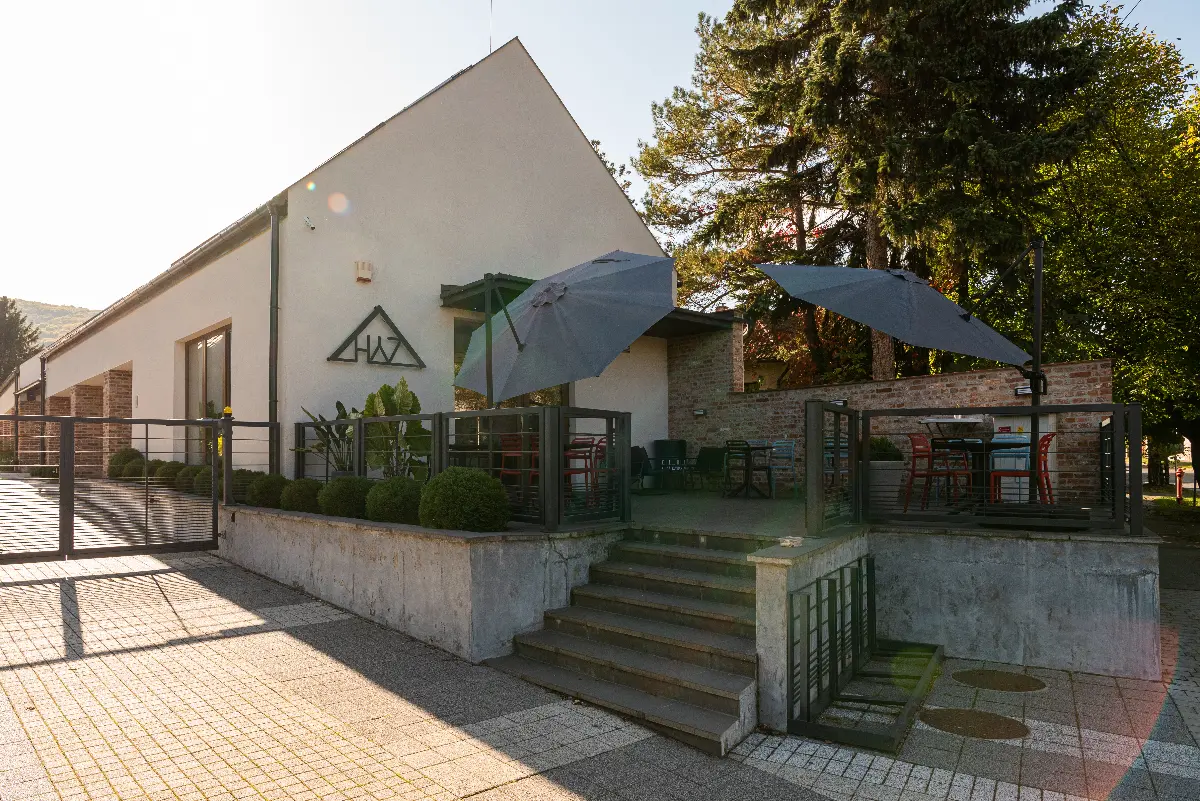
And our coffee comes from A Ház (‘The House’), Diósgyőr. What we experience is that things come naturally by themselves, one relationship gives us another. I don’t want to throw around buzzwords like “farm-to-table” or “0-mileage” – if only because we use Bourbon vanilla, for example, and it originates from Madagascar (Manilia) – but essentially this approach permeates our everyday lives and it works.
We have supported a demand, a predictable demand, and a network has been built up.
In collaboration with the farmers, we organised a Christmas market on 15 December in front of the Iszkor here during Advent, for the second time. Everyone brought their own produce, there was home-made egg liqueur, mulled wine and good music, it was very good. Now we have even organised a collection to support the initiative of the kindergarten teachers in the village, so that the children in the kindergarten can get new beds to replace the old ones. Many people offered products to bid on, and a good amount of money was raised in the end. In parallel with this, the Christmas takeaway round was launched, where you could pre-order fish soup, stuffed cabbage, jelly, chestnut stuffed turkey, Somlói dumplings and egg liqueur, among others. There was also a run on vouchers – available all year round, but some people wanted to buy them at 5.00 p.m. on 24 December – and they did. Of course, it’s nice to see that there is a demand for it.
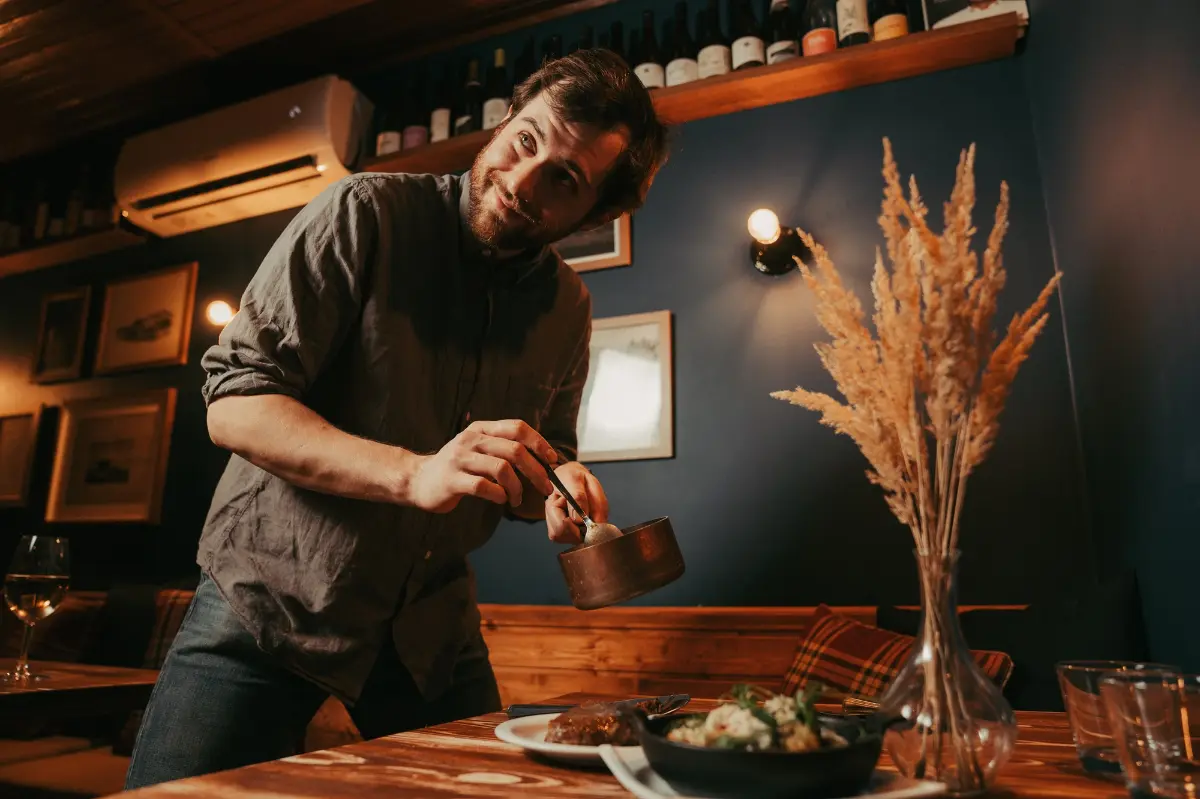
When do you have a rest?
A week in this January. But the interesting thing is that all four seasons work in this area. Even in winter, when there is snow, there is no parking in Bánkút at 8.00 a.m. in the morning, the mountain is invaded by hikers, skiers and sledgers. Although we won’t have the same year, every year is different, but experience leads us to think that summer should be the downtime. We still have to replace the roof, expand the guest area and improve the kitchen infrastructure. In June and July, these can be used to get around, and during the downtime, we can also go to festivals. This year will be the 70th anniversary of Kazincbarcika, there will be many events, I think we will show Iszkor there. In the middle of the year, there can still be four-handed cook-offs, such as the one recently held with the chef of Nomád in Noszvaj. At these events, we can also connect with the guests, but it’s nice to meet the people I used to work with, for example the colleagues from Kistücsök in Balatonszemes and Platán in Tata.
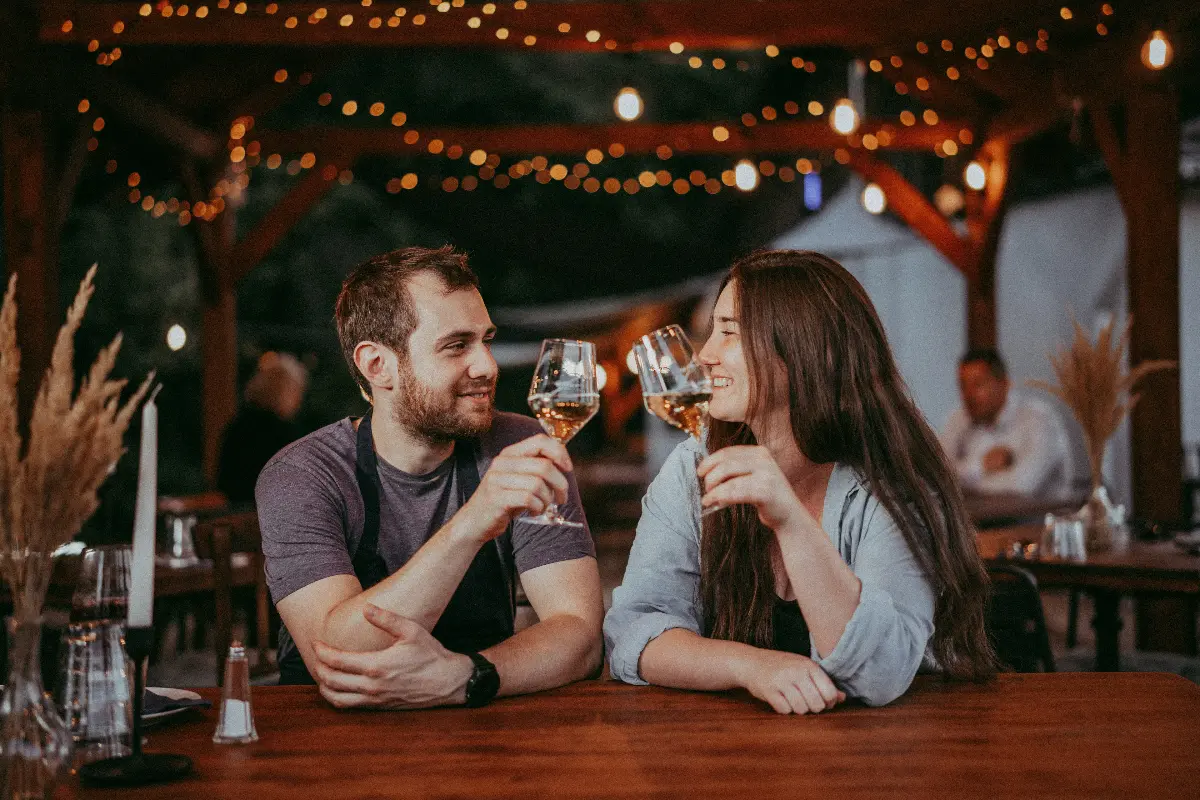
What do you actually expect from Iszkor?
This needs to be reinforced, I am not thinking about another restaurant. We don’t want to raise fat dividends, but we want this place to create a comfortable and secure existence that we can reinvest in people through a smart system. Holistically, I see shortcomings: there are few guesthouses in the village, few breakfast options, and it would be great if the area could attract a few more entrepreneurs. A baker could also come. I could do with a bit more free time – to go for a run – it’s a great boost for me. I have an assistant chef who can take care of the kitchen when I’m not here – this system, this routine needs to be perfected.
And, what happened to the cider?
It eventually became vinegar. About 25 litres.

